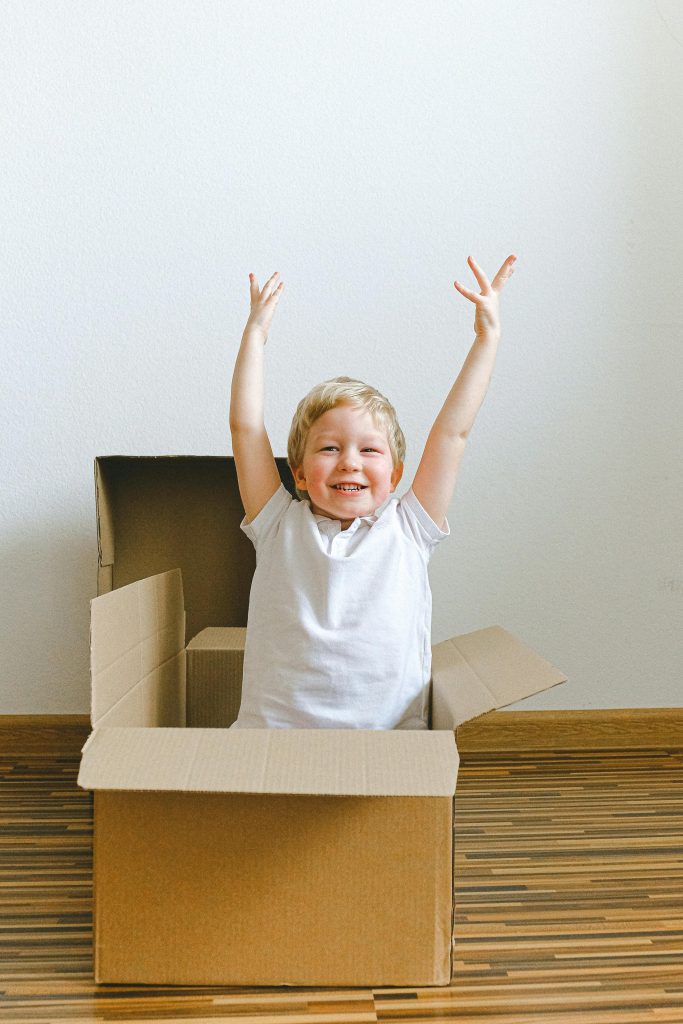For parents
What is Play Therapy?
Play Therapy is counselling for children in the same way as adults have counselling. The difference is that the therapy happens through toys and play, rather than through talking. Play Therapy works for children because they can play out (vs. talk about) their thoughts and feelings. Talking about thoughts and feelings can be hard for adults sometimes, let alone children.
When Play Therapy can help?
Play Therapy can help when things are hard for children. When children find things hard, this can show up in their behaviour. Their feelings may be very intense and they may feel overwhelmed. When this happens, children feel that everything is out of their control.
When things are hard, some children may react become very anxious and/or very sad. They might go inward, close down, and/or keep their feelings inside. Sometimes, they hold feelings in till they can’t bear them any longer and have an outburst. Other children act out, reacting to everything straight away. This may be happening all the time or just periodically. You may know what the causes and triggers are, or you find that the behaviours occur unpredictably. Other times, you just get a sense that something is not quite right and coming in to see us to talk things through can sometimes help work out what’s going on.
Every child is different, and children will utilise Play Therapy in the way that best suits them. Talk to your Play Therapist about how Play Therapy may be appropriate for your child and their unique situation.
Play Therapy speaks in the language of children
We wish that our children would be able to tell us in words what is happening for them. However, this doesn’t happen for most children. Play Therapy is a place where children can communicate their thoughts and feelings in a way that is developmentally appropriate and therefore empowering for the child.
How Play Therapy works
In Play Therapy, a child can “talk” through their thoughts and feelings by playing them out in a safe, therapeutic setting, supported by their play therapist. It is as if toys become their words, and put together into sentences by playing.
Play Therapy is a very satisfying experience for children because they get to express themselves, “thinking” and making sense of their thoughts and feelings through play. They feel good about themselves. Eventually, the child begins to feel more in control of themselves and their lives, they feel happier and more settled and their behaviour improves. They get on better with other people and do things differently.
In Play Therapy, the child may also use sessions to experiment with new ways of behaving. They may try out things through role play and fantasy play. From this, they can develop new coping skills and different ways of responding to situations that are solid and enduring.
Play Therapy is not “just playing”
Play Therapy works in the same way as adult therapy – adults talk through their issues with a therapist and children play through their issues with a Play Therapist, “talking” to the therapist through toys, play and their actions, rather than words.
Toys in a therapeutic playroom are carefully selected so as to allow a wide range of feelings and thoughts. The therapeutic setting allows toys to become symbols of the child’s interior world allowing children to “talk” about their thoughts and feelings, and “tell” stories through play (if this is what they wish to do). In this way, they process their thoughts and feelings with therapeutic support from their Play Therapist.
Just as talking to a therapist for adults is more than just talking, playing in Play Therapy is more than just playing with toys. The therapist creates an environment which the child experiences safety, learns to feel self-confident, learns to limit problem behaviour and taps into their potential. Within this safe environment, the child can fully express him/herself and release whatever it is that is holding them back from reaching their fullest potential and the creative joy that is exists within every child.
Links
- See description “About Play Therapy” by the Australian Play Therapists Association.
- See here for an article about Play Therapy from InPsych, June 2015, Australian Psychological Society.
Older Children
The child centred approach is also appropriate for older children, involving more talking and forms of play that are acceptable to them such as games and art.
The safe and accepting therapeutic environment thus allows the older child to discover their abilities and creative capacity to find solutions to their difficulties.
How Play Therapy happens
How often are sessions and how long do they last?
In Child Centred Play Therapy, children come for weekly sessions, preferably at the same time each week. The rythym of consistency and predictability is part of the safe structure of therapy.
How long does Play Therapy take?
It is difficult to predict accurately how long Play Therapy can take. The course of therapy can be anything from 8 weeks upwards.
Do you involve parents?
Parent support is part of the process. See section on Parenting Support.

